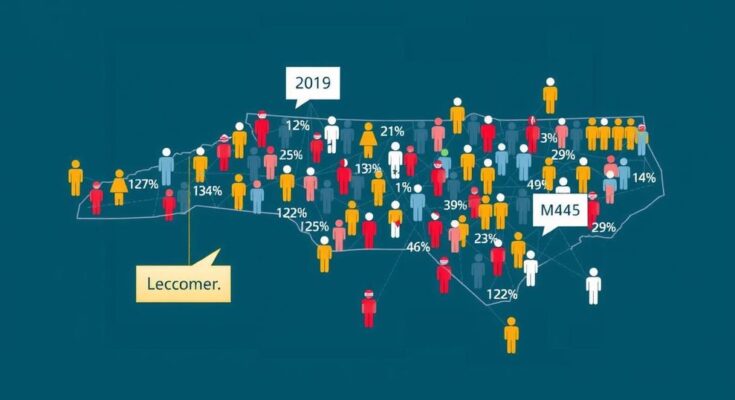The 2024 North Carolina elections have resulted in significant shifts for public education, as Democrat Mo Green is elected superintendent and allied Democrats gain power. This opens possibilities for bipartisan cooperation or competition in educational governance. Green aims to address funding issues, prioritize teacher support, and enhance public education standards. The evolving political dynamics highlight the fragile balance of educational policymaking in the state, affecting future funding and governance.
The 2024 elections in North Carolina present a pivotal moment for public education in the state, characterized by a shift in political power as evidenced by the election of Democrat Mo Green as the new superintendent of public instruction. His victory over Republican Michele Morrow by a narrow 2% margin marks a significant change, accompanied by Democratic gains in several council of state positions, including the lieutenant governor’s office. The overall composition of leadership is expected to foster either robust competition for educational influence or potential bipartisan collaboration, mostly due to the recent breaking of the Republican supermajority in the House of Representatives. As Mo Green begins his tenure, he intends to prioritize increased funding for public education in North Carolina. Historically troubled by budget insufficiencies, he asserts the critical need for investments particularly in areas such as early educational intervention, support for disadvantaged students, and educator salaries. Green’s commitment hinges on restoring respect for public educators through enhancements in working conditions and workload management. In concert with Green, Governor Josh Stein’s administration will appoint significant members to the State Board of Education, further shaping educational policy. This board’s current makeup predominantly includes appointees from outgoing Democratic Governor Roy Cooper, whose policies had aimed at equitable educational opportunities. In the legislature, while Democrats are projected to gain seats, the ramifications of the elections could lead to shifts in how educational governance operates, especially if a supermajority emerges that might attempt to override the governor’s initiatives. Local educators like Justin Parmenter express cautiously optimistic sentiments regarding the potential for enhanced support for public schools, noting a historical trend of legislative focus on private and charter school funding at the expense of traditional public education. Meanwhile, the structure of the State Board of Education remains crucial, as it oversees public school operations and must navigate the evolving political landscape with potential legislative amendments that could affect its governance structure. Ultimately, the outcome of the 2024 elections holds substantial implications for the direction of public education policy, funding, and governance in North Carolina, paving the way for either collaborative progress or a contentious struggle for educational priorities. The key players, including Green, Stein, and Hunt, must navigate the complex interplay of legislative power, community needs, and educational aspirations to achieve success for North Carolina’s public schools.
The 2024 elections in North Carolina are significant as they have resulted in a reshaping of the political landscape affecting public education. The election of Democrat Mo Green as the superintendent of public instruction marks a notable shift following a trend of Republican dominance in recent years. This complex situation is further augmented by the involvement of the governor, lieutenant governor, state legislature, and the State Board of Education, each playing vested roles in educational policymaking and funding. Against a backdrop of prior budget constraints and challenges in public education, the new administration aims to restore support and funding for schools, impacting both educators and students across North Carolina.
In summary, North Carolina’s 2024 election results signal critical changes in public education governance and potential for increased funding and support. As key figures like Mo Green and Josh Stein take charge, there exists a notable opportunity for bipartisan collaboration, contingent on the ability of the new leadership to address the longstanding underfunding of public schools. The coming months and years will determine whether these changes translate into tangible improvements in public education across the state, as all stakeholders navigate the balance of power and educational needs for the future.
Original Source: www.charlotteobserver.com




